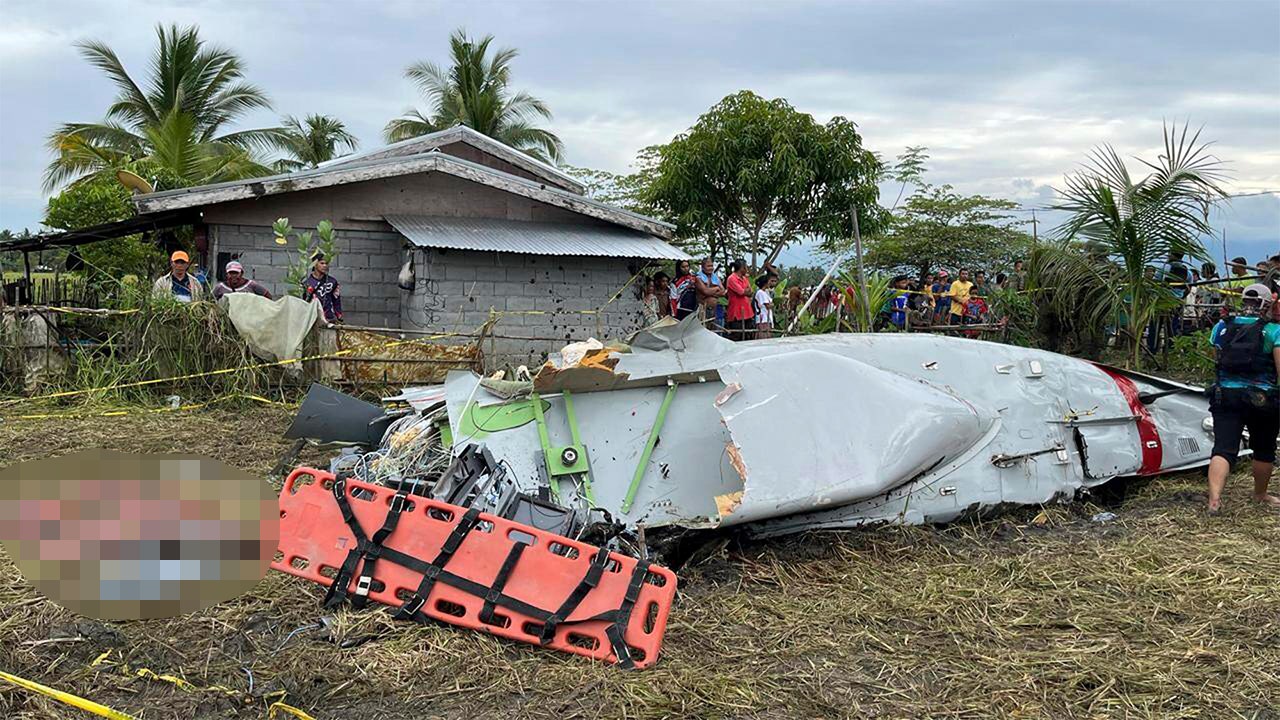World
US military surveillance flight crashes in Philippines, killing 4

Tragedy Strikes: A Fatal Surveillance Flight Crash in the Philippines
On Thursday, a tragic incident unfolded in the southern province of Maguindanao del Sur, Philippines, when a U.S. military surveillance aircraft crashed, resulting in the deaths of four individuals on board. Among the casualties were one U.S. military service member and three defense contractors. The aircraft, a Beechcraft King Air 350 contracted by the Department of Defense, was part of a mission providing critical intelligence, surveillance, and reconnaissance (ISR) support to the Philippine military. This collaboration is part of a broader effort to strengthen U.S.-Philippine security cooperation in the region.
The Mission and the Aircraft
The Beechcraft King Air 350, operated under the U.S. Indo-Pacific Command, was conducting a routine mission to support joint security activities between the U.S. and the Philippines. The aircraft was conducting surveillance in an area known for its challenging security environment, where the Philippine military has been engaged in operations against militant groups. The crash occurred near a cluster of farmhouses, with local residents reporting smoke and an explosion before the plane fell to the ground. Authorities confirmed that there were no survivors, and a water buffalo was also killed in the incident. The names of the deceased are being withheld pending notification of their next of kin.
Investigating the Cause
The cause of the crash remains under investigation, with both U.S. and Philippine officials working to determine the circumstances surrounding the tragedy. A senior U.S. defense official confirmed the type of aircraft involved, and the U.S. Indo-Pacific Command has issued a statement expressing their commitment to transparency as the investigation unfolds. The incident has sparked an outpouring of condolences from both nations, highlighting the deep partnership between the U.S. and the Philippines in addressing regional security challenges.
The Region and Its Strategic Significance
The crash occurred in a region of the Philippines that has long been a focal point for security operations. The southern provinces, particularly Maguindanao del Sur, are home to a significant Muslim minority population in a largely Roman Catholic country. The area has faced decades of instability due to the presence of armed groups, including extremist organizations. U.S. forces have been deployed in the region for years, providing training and support to Philippine troops as they work to stabilize the area and counter these threats. The U.S. military’s presence in the region is a testament to the enduring alliance between the two nations.
Local and Regional Reactions
Local officials, including Windy Beaty, a provincial disaster-mitigation officer, reported that residents in the area observed smoke and heard an explosion before the plane crash. The incident has also drawn attention to the broader context of U.S.-Philippine military cooperation. The U.S. has a long history of providing military assistance to the Philippines, dating back to the two nations’ shared history during World War II. Today, this partnership continues through joint exercises, training programs, and counter-terrorism efforts. The crash serves as a somber reminder of the risks and sacrifices made by service members and contractors in support of these operations.
A Sobering Reminder of the Costs of Security
The crash of the Beechcraft King Air 350 in the Philippines serves as a poignant reminder of the risks inherent in military operations. The loss of one U.S. service member and three defense contractors underscores the sacrifices made by those who work to ensure regional stability and security. As investigations continue, the focus will remain on understanding what went wrong and how to prevent similar tragedies in the future. The incident also highlights the enduring importance of the U.S.-Philippine alliance, which continues to play a critical role in addressing security challenges in the Indo-Pacific region.











